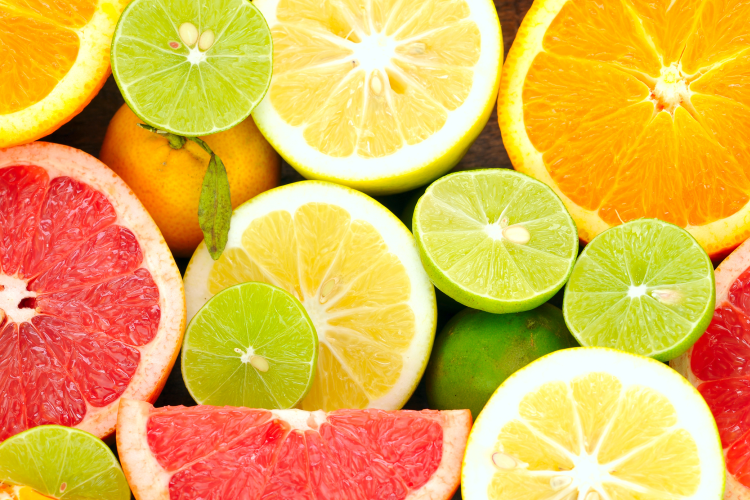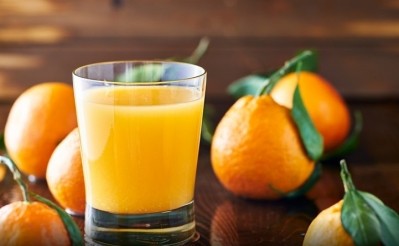The role of citrus in brain health: ‘Citrus bioactive compounds improve general cognition’

Published in Frontiers in Neuroscience, the new study showed that citrus polyphenols have anti-inflammatory and anti-oxidative properties – both important for protecting brain tissues from damage, for example, due to ageing or underlying health conditions.
The research, carried out by a team from the University of East Anglia, collated hundreds of studies that looked at the impact of citrus flavonoids on brain cells and nerves, as well as 10 studies in human populations.
“Having examined the available evidence, we are most confident in the finding that citrus bioactive compounds (i.e. nutrients and polyphenols) improve general cognition, both in healthy populations and people with age-related cognitive decline,” research author Dr David Vauzour, a Senior Research Fellow at the Norwich Medical School, told FoodNavigator.
Damage to brain and nerve cells is one of the earliest signs of degenerative conditions, such as Alzheimer’s and age-related cognitive decline. Dr Vauzour noted that some evidence points to the potential that citrus has in reducing the risk of degenerative diseases. However, he said that this conclusion was ‘less certain’ because it is based on ‘emerging evidence’ and currently confined to animal and mechanistic studies.
“Studies on animals have shown that supplementing the diet with citrus fruits improves deficits in learning and memory, particularly spatial memory – which helps us to remember where we’ve put things – and recognition memory – which is vital for facial and name recall.
“We can see how citrus bioactive compounds would theoretically influence brain conditions, such as dementia, and this is supported by observational studies. But we need evidence from human trials before trusting these early indications,” he explained.
Dr Vauzour said that the whole fruits and juice both have a role to play in supporting bran health as we age.
“Observational studies show combined effects of citrus fruits (juices plus whole fruits) so it’s not possible to differentiate between the two types. The available clinical trials have focused on 100% orange juice – a few interventions added pomace (fibre) back into the juices but this made little effect to the results. This is why we concluded in our review paper that both whole citrus fruits and their juices have a role to play in supporting brain health and cognitive function.
“Interestingly, bioavailability studies show that the absorption of polyphenols from citrus juice is more efficient than from whole fruits – probably because the slightly higher fibre content of whole fruits acts as a barrier in the gut. Regarding sugars, studies show that hesperidin, a polyphenol in oranges, slows the absorption of the natural sugars which explains why both orange juice and whole oranges have a low glycaemic index”
Further research could ‘open the door’ to cognitive health claims
Dr Vauzour believes that more ‘well-designed, controlled clinical trials’ are needed because, to date, only five human trials have tested the impact of citrus polyphenols on cognitive function.
Under EU regulations, citrus fruit and juice makers cannot make health claims related to brain function. “One of the barriers is measuring exactly what citrus bioactives are doing in the brain to provide the high level of proof needed by EFSA. In the past, we relied heavily on a battery of cognitive tests which can be influenced by subjectivity and learning,” De Vauzour noted.
He is working to change this using innovative new approaches that, the brain health expert believes, could ultimately ‘open the door’ to future health claims.
“My lab is working on more objective tests such as bioenergetic tools that measure ATP production in the brain and link this to the cognitive changes. We can also scan the brain using Magnetic Resonance Spectroscopy to see which areas are being activated by different dietary components. This is a very exciting new area of research that could open the door to cognitive health claims in the future.”
Dr Carrie Ruxton, dietitian at the Fruit Juice Science Centre - an organisation funded by juice manufacturers - agrees that further clinical trials could help the citrus industry make that all-important link between consumption and cognitive wellbeing.
“Healthy ageing and preventing cognitive decline are of great interest to consumers, and will only become more relevant given our ageing populations. To capitalise on this, manufacturers need to demonstrate the benefits of their products through clinical research as well as explaining the ‘reason to believe’ in a compelling way,” she told FoodNavigator.
According to Dr Ruxton, in addition to pursuing an authorised EU health claim, the juice sector should also work to increase consumer understanding of the health benefits that polyphenols offer.
“For citrus juices, there is good evidence of cognitive benefit but poor consumer understanding of polyphenols which underpin the mechanisms at work. So, as well as seeking authorised health claims, the industry needs to engage with consumers on the benefits of polyphenols. Interestingly, guidance from EFSA states that a ‘reduced rate of cognitive decline in older people is considered a beneficial physiological effect’ so there is all to play for. The next step would be to fund more studies on juice consumption and cognition using batteries of psychological tests that EFSA will accept as appropriate evidence.”
Dr Ruxton also highlighted the other nutritional benefits that citrus offers. "Citrus fruits and their juices are a rich source of vitamin C and contain flavonoids such as hesperidin. These are well-known to have positive effects on the vascular system and blood pressure, so it is interesting that the benefits extend to the brain," she suggested.
Source
‘Citrus Polyphenols in Brain Health and Disease: Current Perspectives’
Frontiers in Neuroscience
DOI: https://doi.org/10.3389/fnins.2021.640648
Authors: Matthew G. Pontifex, Mohammad M. A. H. Malik, Emily Connell, Michael Müller and David Vauzour















